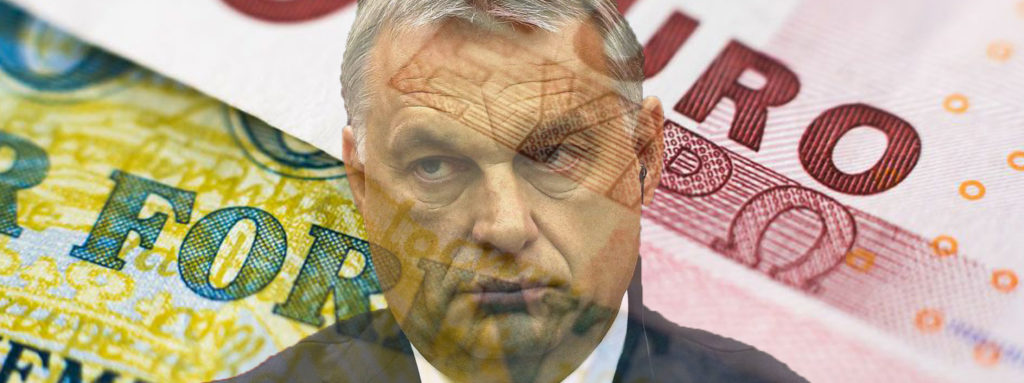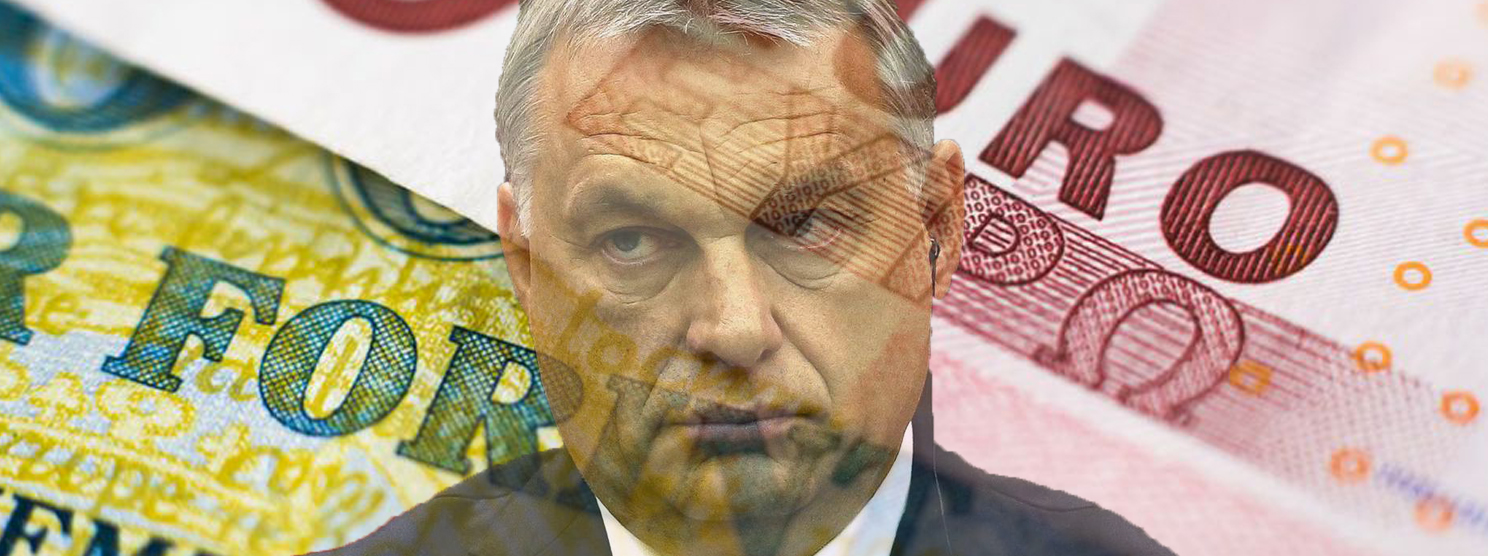Published: 19.8.2020
 Remember what Viktor Orbán said as an opposition leader some years ago? „A weaker forint means a weaker state, and only weak people can possibly want a weak forint.” Moreover, he also stated that the deliberate devaluation of the forint exchange rate is a simple theft, because with it “they steal money out of people’s pockets” by devaluing their salaries.
Remember what Viktor Orbán said as an opposition leader some years ago? „A weaker forint means a weaker state, and only weak people can possibly want a weak forint.” Moreover, he also stated that the deliberate devaluation of the forint exchange rate is a simple theft, because with it “they steal money out of people’s pockets” by devaluing their salaries.
Well, when Fidesz took power in 2010, the euro exchange rate was just over 280 forints. Today – when we are said to be the engine of all development and growth – the exchange rate is at historic peaks; you have to pay around 350 for a single euro. Due to the deliberate weakening of the forint, inflation is also huge; all our imports have become more expensive, so everyone has to pay more at the cashiers. Recalling Orbán’s sentences at the time: the current power steals from us all when it takes a significant amount out of our pockets by devaluing the forint.
Fidesz tends to refer to two things regularly and willingly: the situation and practice of the countries of the Central and Eastern European region, and the opinion of the Hungarian people – that they have asked for, one way or another. Well, if we look at our region, we are starting to lag far behind our leading role: after the Slovaks and Slovenes, now Bulgaria and Croatia have also announced that they will join ERM II, considered the gateway to the euro, and introduce the single currency in 2023.
And as far as people’s opinions are concerned, which Orbán and his gang claim to follow as a kind of compass, also defines a clear path. At the request of the left-wing daily Népszava, Publicus Institute was the east to conduct a representative survey in the matter, according to which more than 51 per cent of the population wants a Hungarian euro and only 37 per cent reject it, the rest are uncertain or have no opinion on the matter. Unsurprisingly, the rejectors are mainly pro-government voters who support Fidesz’s anti-European and anti-EU policies blindly, without question.
Joining the euro is one of the commitments made in the EU treaties, and it is our duty to fulfil it. It may be up for debate whether the Hungarian economy is ready for the first steps (for example, forint inflation is still far from expected) and when it is best to join, but the intention must be clear. Or it should be. Yet the Hungarian government does not even request observer status at the negotiating table of the eurozone countries, although this does not oblige them to do anything, it is just an important source of information and opportunities. It is infinitely sad that the Hungarian government also treats the issue of the common currency arrogantly, condescendingly and merely in light of the personal profitmaking needs of the ruling party’s circles.
Fidesz experts should undertake a substantive debate on this and make it clear to the Hungarian people what the state power thinks about this and why. And the government is at least expected to set a timetable as soon as possible, setting at least a target date for the introduction of the euro. In the absence of this, they only prove that our economy is not on such stable foundations as the domestic propaganda claims, and that they constantly gamble with the forint at the expense of the Hungarian people.
dr. István Ujhelyi
Member of the European Parliament
9 August, 2020
